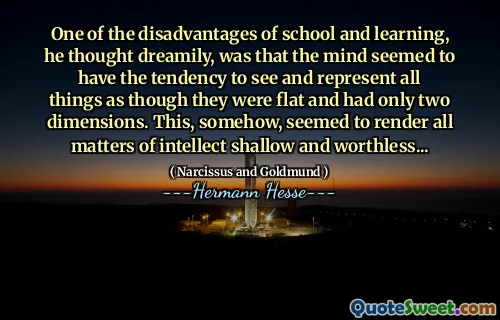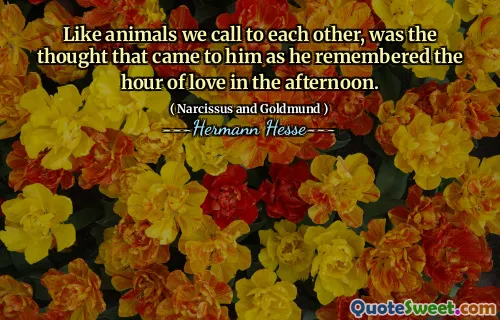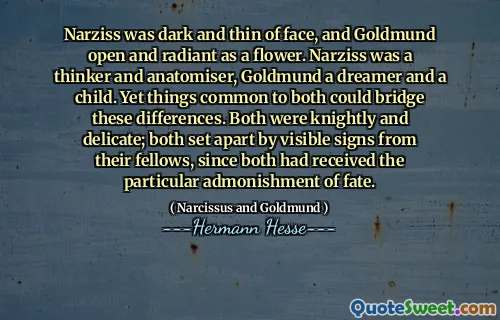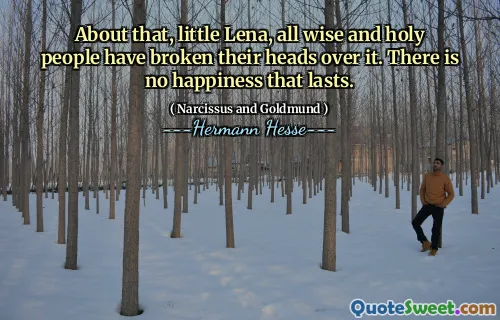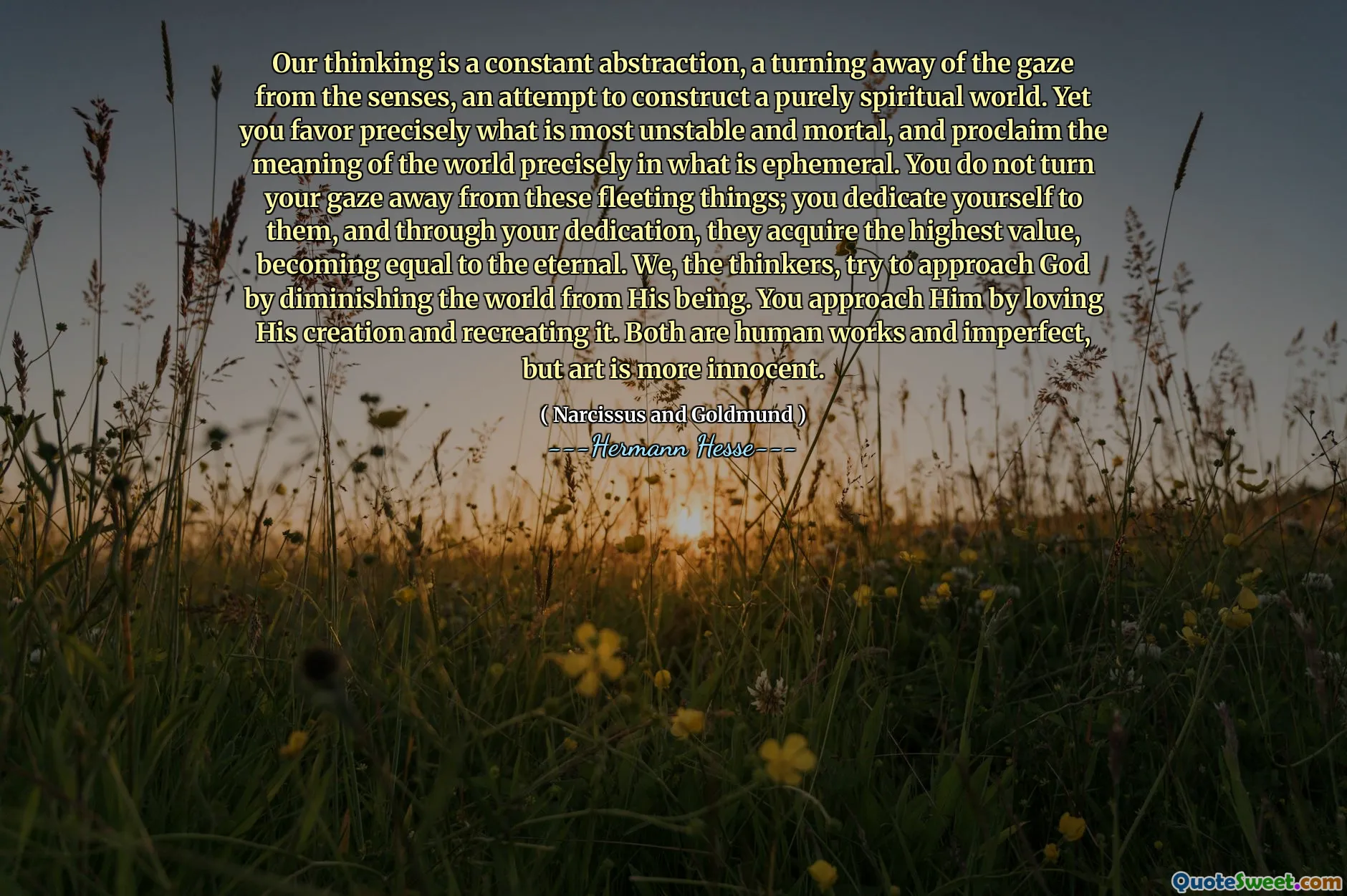
Our thinking is a constant abstraction, a turning away of the gaze from the senses, an attempt to construct a purely spiritual world. Yet you favor precisely what is most unstable and mortal, and proclaim the meaning of the world precisely in what is ephemeral. You do not turn your gaze away from these fleeting things; you dedicate yourself to them, and through your dedication, they acquire the highest value, becoming equal to the eternal. We, the thinkers, try to approach God by diminishing the world from His being. You approach Him by loving His creation and recreating it. Both are human works and imperfect, but art is more innocent.
This quote explores the profound contrast between two perspectives on understanding and engaging with reality and the divine. The first perspective, associated with thinkers or philosophers, attempts to transcend the physical and sensory world through abstraction, seeking a spiritual or metaphysical realm that is untainted by the transient nature of worldly things. This approach often involves a detachment from the impermanence of life, aiming for a higher, unchanging truth. Conversely, the other perspective, perhaps represented by an artist or a lover of creation, finds divine meaning within the very impermanence and fragility of the world. Instead of fleeing materiality, this view embraces it, dedicating love and attention to fleeting moments and transient creations. Through this engagement, ephemeral things gain profound significance, becoming as valuable as eternal truths. The quote beautifully suggests that both approaches—abstraction and love—are human endeavors imperfect in their own ways. The philosophical path seeks to diminish the material to approach divinity, while the artistic, more innocent path celebrates creation and love of the physical world as a route to the divine. The idea hints at the harmony possible between these perspectives, recognizing that human imperfection is inherent, yet different paths can lead to a grasp of the sacred.
